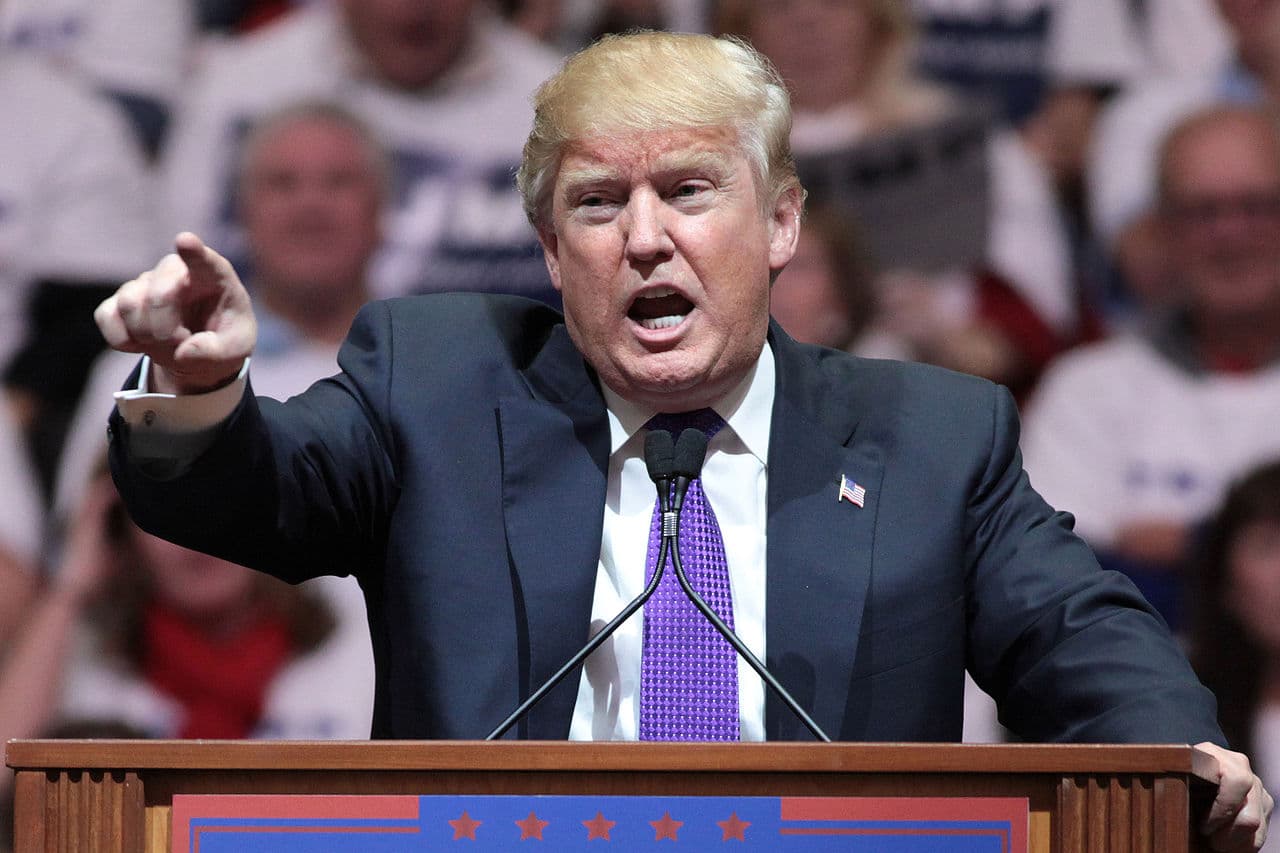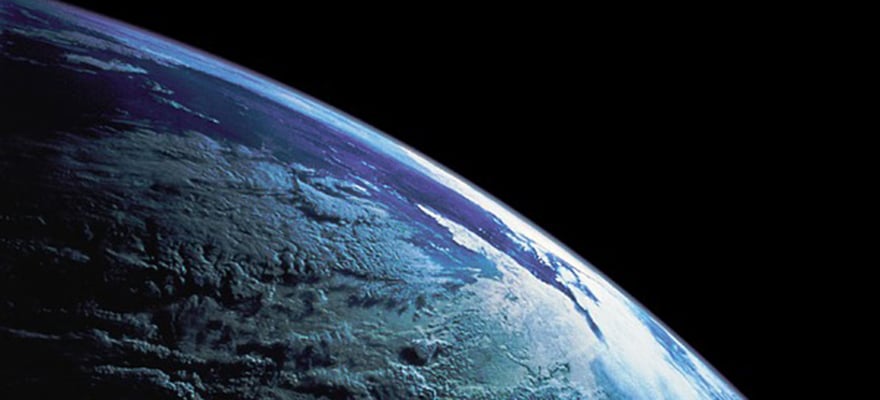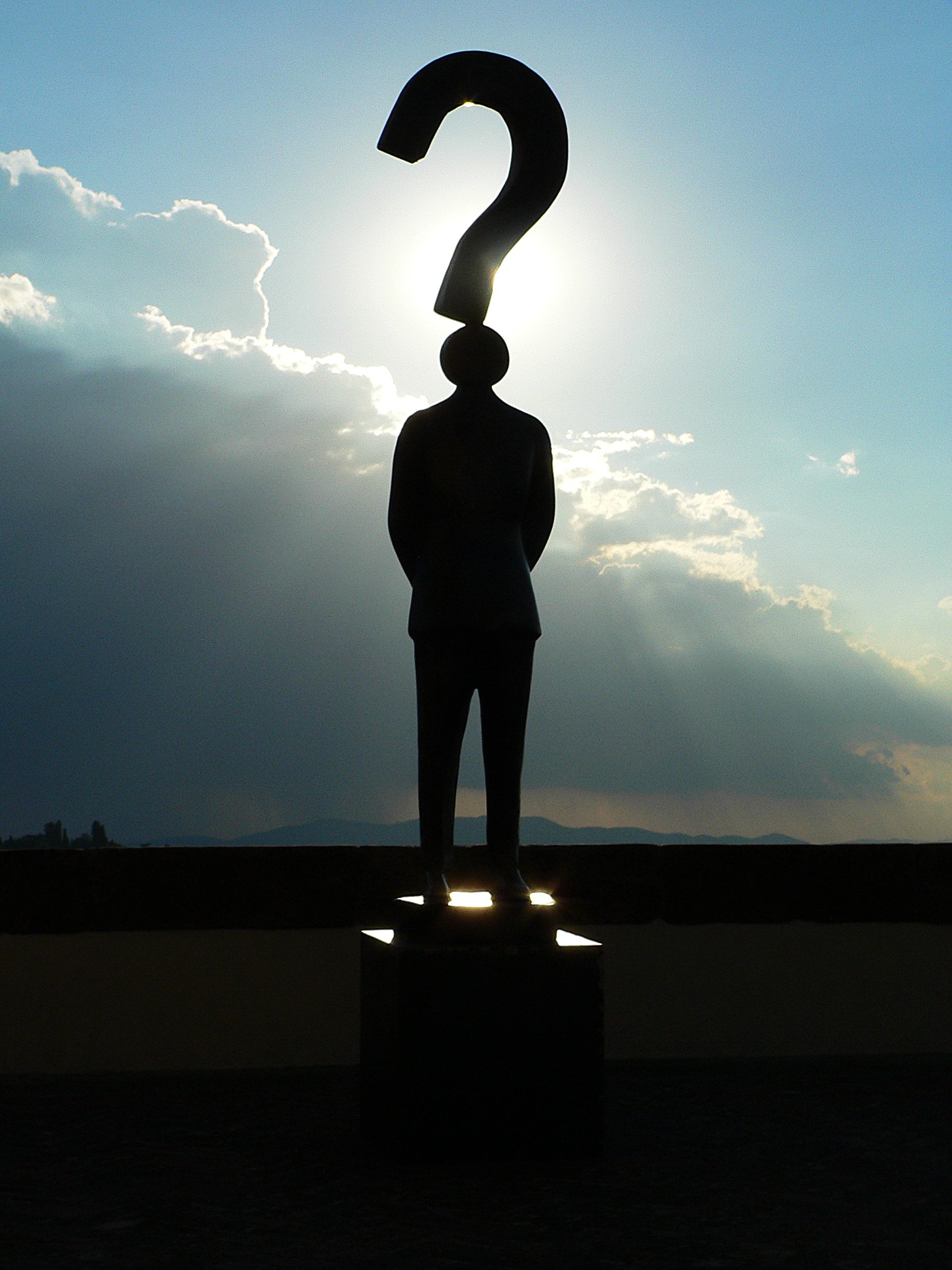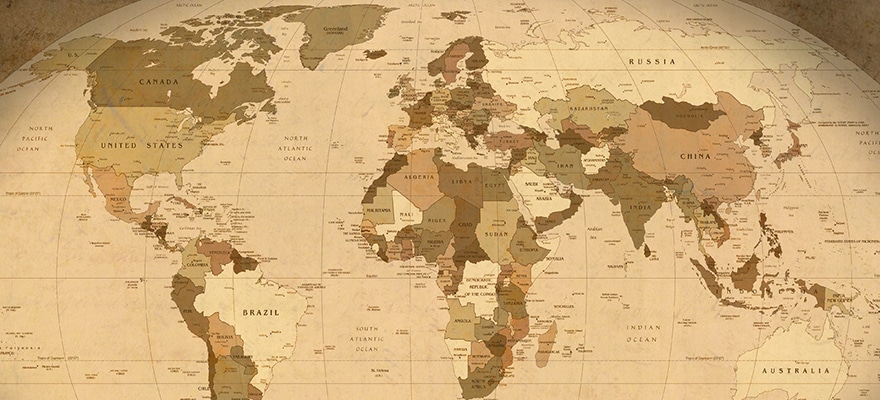This guest article was written by William Laraque who is the Managing Director of US-International Trade Services.
Food for Thought
Goethe said that a man sees in the world what he carries in his heart.
We've often heard the phrase 'tactically brilliant but strategically irrelevant'. This dictum applies to times like these in the US and the world. One of the signature promises of the US president-elect is to undo NAFTA, TPP and TTIP, the proposed Trans-Atlantic Trade and Investment agreement with the EU, among other efforts to upend trade and diplomatic initiatives.
In relating to the battle for influence in global trade, it would have been convenient to cite the Boeing Dreamliner or the Apple iPhone as graphic examples of a more nuanced global trade than what Trump is referring to.
The US is not in a mood for the nuanced and complex however. The 'man and woman on main street' is not of a sensibility to be lectured to on the fine points of global trade. He and she is in a reactive and rebellious mood from having been ignored, impacted and rendered politically irrelevant and financially underserved for many years. He and she is in a simple and simplistic mood. I therefore decided to write about something we can all relate to; food.
The Upending
Technology helps us to deal efficiently with the time/cost problem. Everywhere, in one industry after another, from taxis (transportation) to legal and medical services, the issue of the time and cost in the delivery of services is being upended.
Quality of service and purpose is something else. Quality of service requires deep knowledge which is formed by education, the separation of information from noise, of information from data.
In the process of producing a more efficient world, we do not necessarily produce a more effective one. Effectiveness aims at a standard, efficiency aims at reducing the cost/time coefficient.
In economies, productivity has outdistanced wages and the goal which is a higher quality of life. Freud calls this quality of life the pursuit of happiness, our common human striving for love and work.
Technology has brought us efficiency on the farm, for example, but it has not provided the ability to feed everyone. The market alone does not efficiently translate into equal access to food. This is where the entrepreneur comes in.
The entrepreneur perceives and fills the gaps left by the market. Unfortunately, these gaps represent human suffering, human hunger. Violence exacerbates and does not solve the problem. The problem is as in full display in Fergurson as it is in Fallujah.
An ecosystem of enabling legislation, Regulation
Regulation
Like any other industry with a high net worth, the financial services industry is tightly regulated to help curb illicit behavior and manipulation. Each asset class has its own set of protocols put in place to combat their respective forms of abuse.In the foreign exchange space, regulation is assumed by authorities in multiple jurisdictions, though ultimately lacking a binding international order. Who are the Industry’s Leading Regulators?Regulators such as the UK’s Financial Conduct Authority (
Like any other industry with a high net worth, the financial services industry is tightly regulated to help curb illicit behavior and manipulation. Each asset class has its own set of protocols put in place to combat their respective forms of abuse.In the foreign exchange space, regulation is assumed by authorities in multiple jurisdictions, though ultimately lacking a binding international order. Who are the Industry’s Leading Regulators?Regulators such as the UK’s Financial Conduct Authority (
Read this Term and democracy is of necessity in order to empower the entrepreneur to fill in the global gaps caused by market inefficiencies.
Democracy and free market capitalism are capable of continuous improvement. Other forms of government, other models of economic growth are not. Democracy is part of the enabling ecosystem that empowers the entrepreneur to reach escape velocity, to thrive in collaborative and mutually supportive global trade.
The largely agricultural economies of the developing world have produce and other products that improve the diet and tables of developed countries. It has always been so. Developed countries have software, like Granular, that can be used to improve agricultural efficiency in developing countries.
Israel and several Israeli companies with which I collaborate are heavily involved in transforming the economies and markets of Africa in food security and food production. Those who have turned the desert into a garden and partially turned their swords into plowshares are in a position to teach the poorest of the poor how to turn their depravity into fruitfulness.
The objective is the improvement of the quality of life in all countries. This is not a problem that is solved by technology alone. It is solved by collaboration and sharing in a new economic model.
A Canal too Far and the Piñata
China is involved in an escalating bid (from $40 billion to $70 billion) to construct an artificial waterway across Nicaragua.
The full and public disclosure of the Environmental Resources Management Report or ERM on the planned construction has not been made. Some 27,000 Nicaraguans would have to be relocated. They have pledged to put up a fight.
Less dramatic perhaps but more significant is the fact that China cannot go it alone in financing this project. Investors have not been attracted to finance this 'path between the seas' because of the environmental and social hurdles as well as the dubious economics of the plan.
The Grandiose and the Entrepreneur
My principal concern about Nicaragua is the same that I have with all Chinese Resources for Infrastructure Investment (R4I) projects which now stretch from Africa to S. America. What do they do to create an authentic, native, organic entrepreneurship? Such investment in entrepreneurship is the basis for job and economic development as I have frequently exhorted.
What is even more devastating is the kleptocracy.
To paraphrase Ms. O'Grady in a WSJ editorial, in the days of the Sandanista Revolution (in Nicaragua), the 'comandantes' famously confiscated the finest properties in the country for themselves.
This kleptocracy became known colloquially as 'la piñata'. Mr. Ortega, the leader of Nicaragua, has agreed to China's Hong Kong Development Company's concession to build two ports, a free-trade zone, holiday resorts and an international airport. Mr. Ortega will no doubt benefit from these projects and construction of the world's largest piñata.
Trade and Tables: "Let Them Eat Potatoes"
A great deal of the history of trade involves the improvement in the living standard and enjoyment of food by those who could afford this improvement.
Spices, coffee, tea, sugar, rum and less exotic fare such as potatoes not only improved the enjoyment of eating and drinking, but the enjoyment of life. In deference to Freud, some foods and drink are closely related to love; wine for example.
Potatoes were brought to France when the wheat crop failed; not so that the common man could enjoy life but so that he/she could survive. The famed comment attributed to Marie Antoinette of "let them eat cake" is both inaccurate and irrelevant; inaccurate because it was in effect "let them eat potatoes" and as far as the mob was concerned, irrelevant because she was going to lose her head regardless.
California the Conundrum
Near to where the most advanced technological developments in the world are developed and financed, 40% of the food produced is wasted.
Farmers in the Salinas Valley, not far from Silicon Valley, dump 40% of what they produce because they do not get their market price. So much for the vaunted efficiency of the market when it comes to food distribution in the U.S.
The problem is exacerbated when we consider all of the food deserts that exist throughout the U.S. and the world. At the polar, transcontinental opposite of California, at the Bronx-based Hunts Point Market, I have observed the logistical process of feeding daily the 30 million people in the tristate NY area.
The contrast between food waste alongside the technologically sophisticated and the logistical marvel of the Hunts Point Market is stark.
The software has been developed whereby the water, fertilizer and other resources needed to grow plants and livestock can be managed down to the square meter, to the plant or animal.
In the U.S. we make the world's most reliable and sophisticated farm implements. The inside of a John Deere tractor's cab resembles that of an airplane cockpit. It is that sophisticated.
The transportation/allocation problem is an operations research technique that can be used to optimally allocate resources according to market, need or any other criteria of prioritization.
The U.S. Army used these techniques and developed EDI in order to resupply Berlin during the Cold War, when the Iron Curtain was drawn. Today, we have sophisticated ERP systems that link everything in a corporate supply chain to its mission.
Clearly there is a global mismatch between the growth of food and its destination. The 40% wastage in California is representative of this misallocation of food. It is also indicative of what can be called the Jobs Conundrum. Steve Jobs noted that you have to start at the customer experience and then work backwards to the technology, not the other way around.
When it comes to food production, the supposedly sophisticated world has it backwards. The transportation/allocation problem should be reversed. We must first open the Curtain of Apathy, the mental curtain of neglect, indifference and under service.
Paul Krugman pointed out that when it comes to human suffering, neglect and apathy are crimes. Pope Francis is kinder. He calls them sins. Religion offers forgiveness and mitigation.
"A man sees in the world what he carries in his heart."
We must first determine what it is global markets demand as reflected in price and then produce the food based on the optimal production of food, of plants and animals to meet this demand. The software exists. The will doesn't.
The Israelis have developed it. Google has financed the development of Granular. Instead of destroying markets with the donation of food by well-intentioned NGOs (see NY Times article When Food is Not the Answer to Hunger), let us use existing operations research techniques, existing equipment and known market prices to help farmers in the largely agricultural economies of emerging markets determine what crops and livestock to grow based on realistic market factors of demand and logistics.
When it comes to food production, the U.S. is not a market economy at all. It is a grossly inefficient economy reminiscent of the days when the centrally planned Soviet Union sent 200,000 pairs of boots to the Egyptian Army, all left footed, and sent tanks to that same army equipped with snow plows. As the song indicates, no, "it doesn't rain in Southern California" and it doesn't snow in Egypt.
"The quality of mercy is unstrained and falleth like the gentle rain from heaven."
The level of food wastage in a world where so many go hungry is more indicative of a tyranny than a democracy.
We, the 'sophisticated', are the Fourth World, the backward who hide behind the Apathetic Curtain.
"The enemy of love is not hatred, it is indifference" ~ Elie Wiesel
It's the Investment Stupid
At the end of this tumultuous day, the financial system is undergoing upheaval. In the process, the role of commercial banks, investment banks and community and economic development organizations will be altered as their processes become more inclusive, more diffuse and more egalitarian.
The investor and the entrepreneur will participate directly in development, in the creation of jobs.
This guest article was written by William Laraque who is the Managing Director of US-International Trade Services.
Food for Thought
Goethe said that a man sees in the world what he carries in his heart.
We've often heard the phrase 'tactically brilliant but strategically irrelevant'. This dictum applies to times like these in the US and the world. One of the signature promises of the US president-elect is to undo NAFTA, TPP and TTIP, the proposed Trans-Atlantic Trade and Investment agreement with the EU, among other efforts to upend trade and diplomatic initiatives.
In relating to the battle for influence in global trade, it would have been convenient to cite the Boeing Dreamliner or the Apple iPhone as graphic examples of a more nuanced global trade than what Trump is referring to.
The US is not in a mood for the nuanced and complex however. The 'man and woman on main street' is not of a sensibility to be lectured to on the fine points of global trade. He and she is in a reactive and rebellious mood from having been ignored, impacted and rendered politically irrelevant and financially underserved for many years. He and she is in a simple and simplistic mood. I therefore decided to write about something we can all relate to; food.
The Upending
Technology helps us to deal efficiently with the time/cost problem. Everywhere, in one industry after another, from taxis (transportation) to legal and medical services, the issue of the time and cost in the delivery of services is being upended.
Quality of service and purpose is something else. Quality of service requires deep knowledge which is formed by education, the separation of information from noise, of information from data.
In the process of producing a more efficient world, we do not necessarily produce a more effective one. Effectiveness aims at a standard, efficiency aims at reducing the cost/time coefficient.
In economies, productivity has outdistanced wages and the goal which is a higher quality of life. Freud calls this quality of life the pursuit of happiness, our common human striving for love and work.
Technology has brought us efficiency on the farm, for example, but it has not provided the ability to feed everyone. The market alone does not efficiently translate into equal access to food. This is where the entrepreneur comes in.
The entrepreneur perceives and fills the gaps left by the market. Unfortunately, these gaps represent human suffering, human hunger. Violence exacerbates and does not solve the problem. The problem is as in full display in Fergurson as it is in Fallujah.
An ecosystem of enabling legislation, Regulation
Regulation
Like any other industry with a high net worth, the financial services industry is tightly regulated to help curb illicit behavior and manipulation. Each asset class has its own set of protocols put in place to combat their respective forms of abuse.In the foreign exchange space, regulation is assumed by authorities in multiple jurisdictions, though ultimately lacking a binding international order. Who are the Industry’s Leading Regulators?Regulators such as the UK’s Financial Conduct Authority (
Like any other industry with a high net worth, the financial services industry is tightly regulated to help curb illicit behavior and manipulation. Each asset class has its own set of protocols put in place to combat their respective forms of abuse.In the foreign exchange space, regulation is assumed by authorities in multiple jurisdictions, though ultimately lacking a binding international order. Who are the Industry’s Leading Regulators?Regulators such as the UK’s Financial Conduct Authority (
Read this Term and democracy is of necessity in order to empower the entrepreneur to fill in the global gaps caused by market inefficiencies.
Democracy and free market capitalism are capable of continuous improvement. Other forms of government, other models of economic growth are not. Democracy is part of the enabling ecosystem that empowers the entrepreneur to reach escape velocity, to thrive in collaborative and mutually supportive global trade.
The largely agricultural economies of the developing world have produce and other products that improve the diet and tables of developed countries. It has always been so. Developed countries have software, like Granular, that can be used to improve agricultural efficiency in developing countries.
Israel and several Israeli companies with which I collaborate are heavily involved in transforming the economies and markets of Africa in food security and food production. Those who have turned the desert into a garden and partially turned their swords into plowshares are in a position to teach the poorest of the poor how to turn their depravity into fruitfulness.
The objective is the improvement of the quality of life in all countries. This is not a problem that is solved by technology alone. It is solved by collaboration and sharing in a new economic model.
A Canal too Far and the Piñata
China is involved in an escalating bid (from $40 billion to $70 billion) to construct an artificial waterway across Nicaragua.
The full and public disclosure of the Environmental Resources Management Report or ERM on the planned construction has not been made. Some 27,000 Nicaraguans would have to be relocated. They have pledged to put up a fight.
Less dramatic perhaps but more significant is the fact that China cannot go it alone in financing this project. Investors have not been attracted to finance this 'path between the seas' because of the environmental and social hurdles as well as the dubious economics of the plan.
The Grandiose and the Entrepreneur
My principal concern about Nicaragua is the same that I have with all Chinese Resources for Infrastructure Investment (R4I) projects which now stretch from Africa to S. America. What do they do to create an authentic, native, organic entrepreneurship? Such investment in entrepreneurship is the basis for job and economic development as I have frequently exhorted.
What is even more devastating is the kleptocracy.
To paraphrase Ms. O'Grady in a WSJ editorial, in the days of the Sandanista Revolution (in Nicaragua), the 'comandantes' famously confiscated the finest properties in the country for themselves.
This kleptocracy became known colloquially as 'la piñata'. Mr. Ortega, the leader of Nicaragua, has agreed to China's Hong Kong Development Company's concession to build two ports, a free-trade zone, holiday resorts and an international airport. Mr. Ortega will no doubt benefit from these projects and construction of the world's largest piñata.
Trade and Tables: "Let Them Eat Potatoes"
A great deal of the history of trade involves the improvement in the living standard and enjoyment of food by those who could afford this improvement.
Spices, coffee, tea, sugar, rum and less exotic fare such as potatoes not only improved the enjoyment of eating and drinking, but the enjoyment of life. In deference to Freud, some foods and drink are closely related to love; wine for example.
Potatoes were brought to France when the wheat crop failed; not so that the common man could enjoy life but so that he/she could survive. The famed comment attributed to Marie Antoinette of "let them eat cake" is both inaccurate and irrelevant; inaccurate because it was in effect "let them eat potatoes" and as far as the mob was concerned, irrelevant because she was going to lose her head regardless.
California the Conundrum
Near to where the most advanced technological developments in the world are developed and financed, 40% of the food produced is wasted.
Farmers in the Salinas Valley, not far from Silicon Valley, dump 40% of what they produce because they do not get their market price. So much for the vaunted efficiency of the market when it comes to food distribution in the U.S.
The problem is exacerbated when we consider all of the food deserts that exist throughout the U.S. and the world. At the polar, transcontinental opposite of California, at the Bronx-based Hunts Point Market, I have observed the logistical process of feeding daily the 30 million people in the tristate NY area.
The contrast between food waste alongside the technologically sophisticated and the logistical marvel of the Hunts Point Market is stark.
The software has been developed whereby the water, fertilizer and other resources needed to grow plants and livestock can be managed down to the square meter, to the plant or animal.
In the U.S. we make the world's most reliable and sophisticated farm implements. The inside of a John Deere tractor's cab resembles that of an airplane cockpit. It is that sophisticated.
The transportation/allocation problem is an operations research technique that can be used to optimally allocate resources according to market, need or any other criteria of prioritization.
The U.S. Army used these techniques and developed EDI in order to resupply Berlin during the Cold War, when the Iron Curtain was drawn. Today, we have sophisticated ERP systems that link everything in a corporate supply chain to its mission.
Clearly there is a global mismatch between the growth of food and its destination. The 40% wastage in California is representative of this misallocation of food. It is also indicative of what can be called the Jobs Conundrum. Steve Jobs noted that you have to start at the customer experience and then work backwards to the technology, not the other way around.
When it comes to food production, the supposedly sophisticated world has it backwards. The transportation/allocation problem should be reversed. We must first open the Curtain of Apathy, the mental curtain of neglect, indifference and under service.
Paul Krugman pointed out that when it comes to human suffering, neglect and apathy are crimes. Pope Francis is kinder. He calls them sins. Religion offers forgiveness and mitigation.
"A man sees in the world what he carries in his heart."
We must first determine what it is global markets demand as reflected in price and then produce the food based on the optimal production of food, of plants and animals to meet this demand. The software exists. The will doesn't.
The Israelis have developed it. Google has financed the development of Granular. Instead of destroying markets with the donation of food by well-intentioned NGOs (see NY Times article When Food is Not the Answer to Hunger), let us use existing operations research techniques, existing equipment and known market prices to help farmers in the largely agricultural economies of emerging markets determine what crops and livestock to grow based on realistic market factors of demand and logistics.
When it comes to food production, the U.S. is not a market economy at all. It is a grossly inefficient economy reminiscent of the days when the centrally planned Soviet Union sent 200,000 pairs of boots to the Egyptian Army, all left footed, and sent tanks to that same army equipped with snow plows. As the song indicates, no, "it doesn't rain in Southern California" and it doesn't snow in Egypt.
"The quality of mercy is unstrained and falleth like the gentle rain from heaven."
The level of food wastage in a world where so many go hungry is more indicative of a tyranny than a democracy.
We, the 'sophisticated', are the Fourth World, the backward who hide behind the Apathetic Curtain.
"The enemy of love is not hatred, it is indifference" ~ Elie Wiesel
It's the Investment Stupid
At the end of this tumultuous day, the financial system is undergoing upheaval. In the process, the role of commercial banks, investment banks and community and economic development organizations will be altered as their processes become more inclusive, more diffuse and more egalitarian.
The investor and the entrepreneur will participate directly in development, in the creation of jobs.






















